Electrical Wiring Regulations In The United Kingdom
Electrical wiring in the United Kingdom is commonly understood to be an electrical installation for operation by end users within domestic, commercial, industrial, and other buildings, and also in special installations and locations, such as marinas or caravan parks.[1] It does not normally cover the transmission or distribution of electricity to them.
Electrical Installation Condition Report
Installations are distinguished by a number of criteria, such as voltage (high, low, extra low), phase (single or three-phase), nature of electrical signal (power, data), type and design of cable (conductors and insulators used, cable design, solid/fixed or stranded/flexible, intended use, protective materials), circuit design (ring, radial), and so on.
Contact usElectrical Wiring Regulations
Electrical wiring is ultimately regulated to ensure safety of operation, by such as the building regulations, currently legislated as the Building Regulations 2010, which lists "controlled services" such as electric wiring that must follow specific directions and standards, and the Electricity at Work Regulations 1989. The detailed rules for end-use wiring followed for practical purposes are those of BS 7671 Requirements for Electrical Installations. (IET Wiring Regulations), currently in its 18th edition, which provide the detailed descriptions referred to by legislation.
UK electrical wiring standards are largely harmonized with the regulations in other European countries and the international IEC 60446 standard. However, there are a number of specific national practices, habits and traditions that differ significantly from other countries, and which in some cases survived harmonization. These include the use of ring circuits for domestic and light commercial fixed wiring, fused plugs, and for circuits installed prior to harmonization, historically unique wiring colours.
UK Wiring Regulations
All new electrical work in England and Wales within a domestic setting must comply with Part P of the Building Regulations first introduced on 1 January 2005, which are legally enforceable.
One way of achieving this is to apply British Standard BS 7671 (the "Wiring Regulations"), including carrying out adequate inspection and testing to this standard of the completed works.
British Standard BS 7671 (the "Wiring Regulations") is not statutory, thus someone doing electrical work is allowed to deviate from the wiring regulations to some degree, but it is generally accepted that it is best to follow the wiring regulations to the highest standard possible.
Electrical work does not have to be compliant with BS 7671, but if a casualty or fatality occurs as a direct result of that electrical work, and this results in a legal action, then it may be necessary to justify major deviations from the principles of BS 7671 and other appropriate standards.
Wiring Regulations Introduction
Some of the restrictions first introduced with the 2005 version of Part P of the Building Regulations were highly controversial, especially the rules surrounding work carried out by unregistered electricians, builders and DIYers. Under the new regulations, commencement of any work other than simple changes became notifiable to the local building control authority;
"other than simple" in this context meant any work in a kitchen or bathroom other than like-for-like replacement, work in other areas more than just adding extra lights or sockets to an existing circuit, or meeting certain other criteria, such as outdoor wiring.
To coincide with the new regulations, the Government approved several professional bodies to award "competent persons" status to enterprises which meet the minimum agreed criteria for Scheme entry.
Scheme membership allows an enterprise to "self-certify" work that they carry out without the requirement to have undergone any formal installation training or to hold relevant qualifications in electrical installation practices - since practical competence can be assessment-based only. The minimum criteria for Scheme entry are set by the EAS Committee, on which all of the commercial enterprises running Competent Persons Schemes are actively represented.
Local authority's building control
The local authority's building control must be informed of any notifiable work carried out by someone who is not registered under this scheme before it is started (unless it is an emergency) and must subsequently be approved by them. Originally, it was widely understood by some local authorities that inspection by a qualified person (leading to authority approval) must be organised and paid for by the homeowner or person responsible for the site and this caused some considerable criticism.
On 6 April 2006, Part P was amended to clarify the requirements around certification of DIY work (or work completed by someone otherwise unable to self-certify) and to "make enforcement more proportionate to the risk".
The 2006 amendment made it clear that it is the responsibility of the building control authority to issue the necessary certificate (a Building Regulations Completion Certificate) once work has been completed. Any inspection required to safely issue that certificate must be determined by, and paid for by, the building control authority. This can be done "in house" or they may contract the work out to a specialist body. Although any inspections are at the expense of the building authority, notification of building work is a formal process and a building control fee is payable.
Installation of 12 V downlighters
In some cases the installation of 12 V downlighters is notifiable whereas the installation of 230 V mains downlighters is not. This is because 12 V downlighters draw high currents, in comparison with a mains voltage lamp with the same power rating, and that combined with the wrong choice of cable could lead to a fire.
Additionally, whilst the Building Regulations apply equally to anyone carrying out electrical work in dwellings, without appropriate knowledge and test equipment it is not possible to ensure that the work carried out is safe. Registered Scheme members must issue appropriate certification for each job.
Another element of confusion is that the term "Special Locations" has different meanings in Part P of the Building Regulations and BS 7671 (the "Wiring Regulations").
Later revisions of part P (latest is 2013) retain the requirement to work to an appropriate standard, but have relaxed the requirements on both certification and notification for many more types of minor works, and crucially also permit a member of an approved body to inspect and 'sign off' notifiable aspects of any work of a third party such as DIYer whose work is of a suitable standard.
This is intended to free up local authorities, who often do not have suitably qualified building control staff themselves. Due to uncertainty about who then becomes responsible for any hidden wiring, very few electricians are happy to sign off an installation that they have not been party to from the outset, and been able to agree stages to inspect and test before any covering in. Source: https://en.wikipedia.org/wiki/Electrical_wiring_in_the_United_Kingdom
Frequently Asked Questions
Local Electrical Services Liverpool
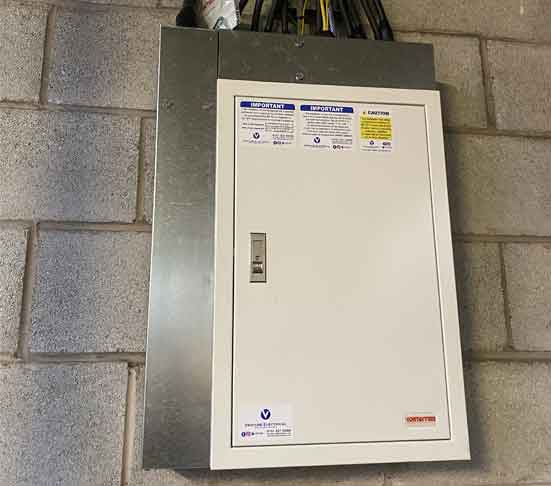
Distribution Board (Fuse Box)
Looking for a reliable electrical service in Liverpool? Look no further than Venture Electrical Ltd! Our team of expert electricians specialize in installing, repairing, and upgrading distribution boards and fuse boxes. We pride ourselves on providing top-quality service at affordable prices. Contact us today for all your electrical needs!
Fuse Box/Consumer Unit Information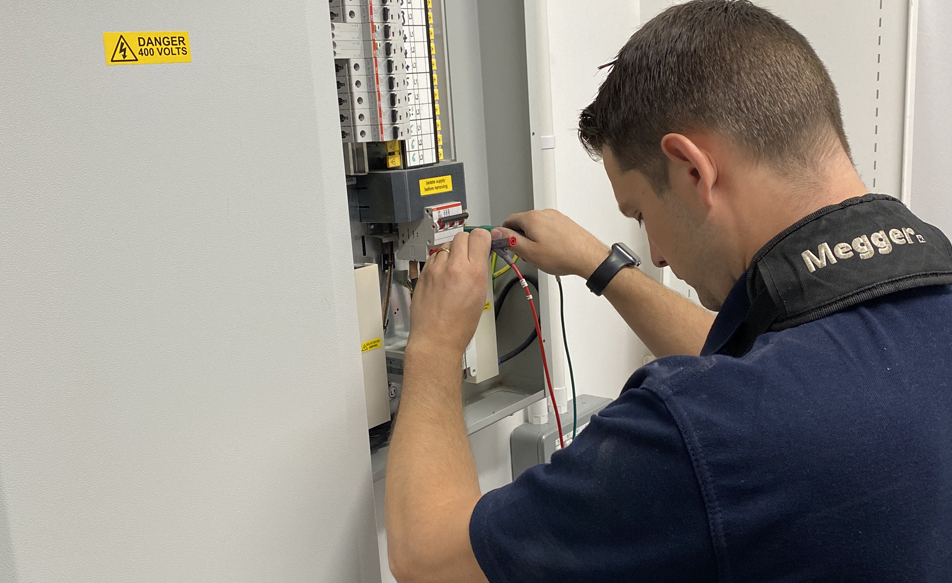
What Is An Electrical Contractor
Welcome to our Liverpool Electrical Contractor Service, your one-stop-shop for all your electrical needs. Our team of certified electricians provide top-quality electrical services for residential, commercial, and industrial properties. From installations to repairs, we offer a range of services to keep your property powered up and running smoothly. Contact us today for a free consultation and estimate!
What does an Electrical contractor do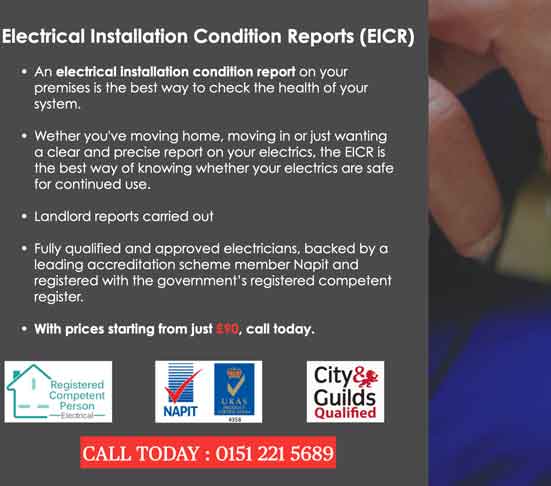
EICR Certificate – Venture Electricians Liverpool
Ensure the safety of your property with our Liverpool Electrical EICR Certificates. Our team of certified electricians conduct thorough inspections of your electrical systems and issue Electrical Installation Condition Reports (EICR) to verify that they are safe and up-to-date with regulations. We provide reliable, efficient, and cost-effective services to keep your property in compliance with industry standards. Contact us today to schedule your inspection!
Electrical Wiring Regulations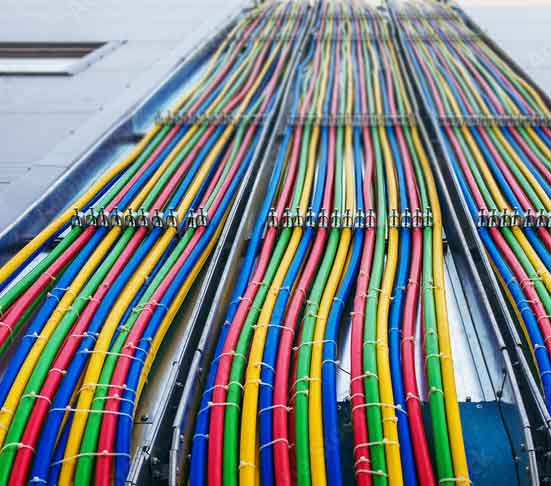
Electrical Wiring
Need electrical wiring services for your home or business? Look no further than our local Domestic and Commercial Electrical Wiring Services. Our team of experienced electricians provide a range of electrical services, from installations to repairs, for both residential and commercial properties. We pride ourselves on delivering top-quality services that meet the highest safety and quality standards. Contact us today to schedule a consultation!
Electrical Wiring Information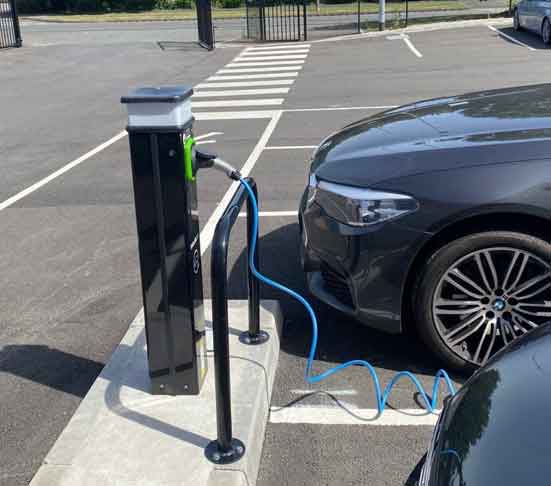
Electric Vehicle Charging Station – Venture Electricians Liverpool
Welcome to our Electric Vehicle Charging Station Services, your go-to destination for all your EV charging needs. Our team of certified electricians specialize in installing and maintaining EV charging stations for both residential and commercial properties. We offer reliable, efficient, and cost-effective services to keep your EV powered up and ready to go. Contact us today to learn more about our services and schedule your installation!
EV Charging Station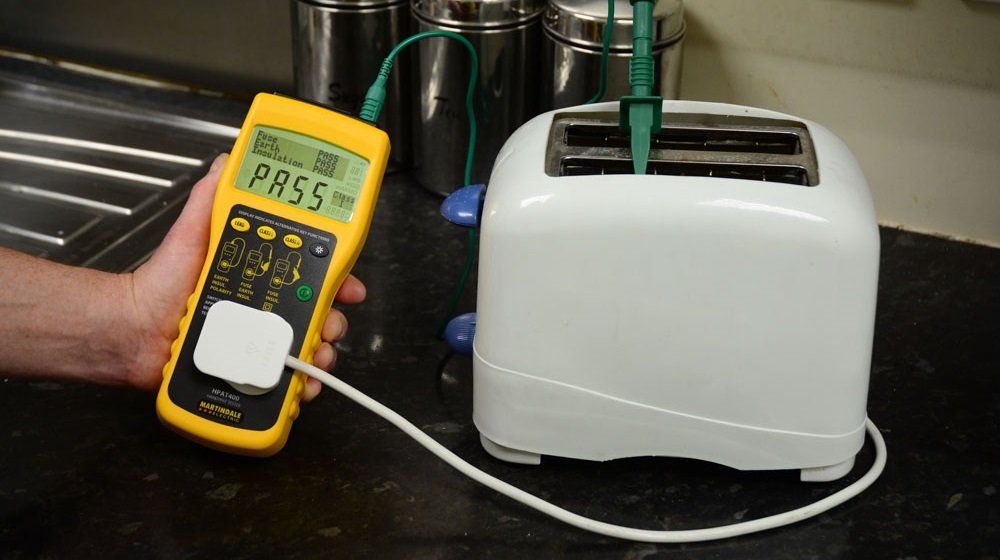
Portable Appliance Testing
Ensure the safety of your electrical appliances with our Electrical Portable Appliance Testing (PAT) service. Our team of certified electricians provide reliable and efficient testing to ensure that your appliances are safe and up-to-date with industry standards. We offer a range of services to both residential and commercial properties, including inspections, testing, and repairs. Contact us today to schedule your PAT service and keep your property safe!
PAT Testing – Venture Electricians Liverpool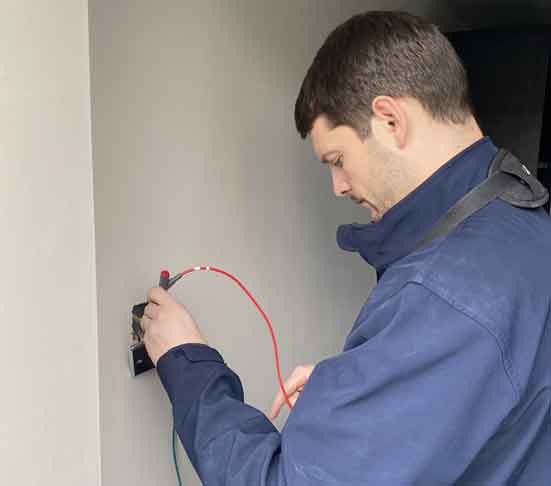
Approved Electrical Fault Finding
Welcome to our Approved Electrical Fault Finding service, where we pride ourselves on being the go-to source for diagnosing and repairing electrical faults. Our team of certified electricians use the latest equipment and techniques to quickly and accurately identify and fix electrical issues. We offer reliable and efficient services to both residential and commercial properties. Contact us today to schedule your fault finding service and get your property back up and running!
Finding Electrical Faults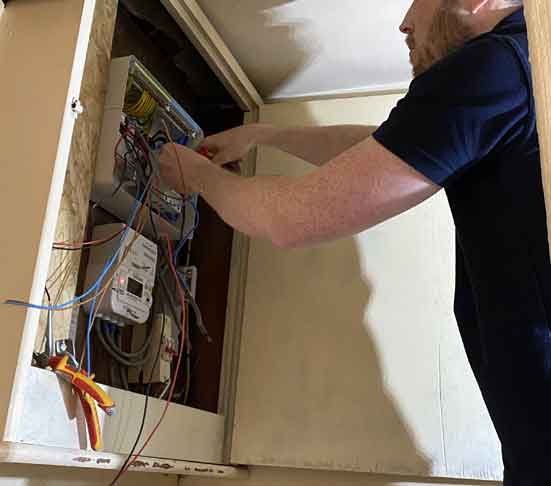
When Does A House Need Rewiring?
At Venture Electrical Ltd we provide approved electrical rewiring services for homes and businesses. Our team of certified electricians specialize in rewiring properties to ensure the safety and functionality of electrical systems. We offer reliable and efficient services at competitive prices, using only the highest quality materials and techniques. Contact us today to schedule a consultation and keep your property safe and up-to-date with industry standards.
House Rewiring – Renewing Electrical Wiring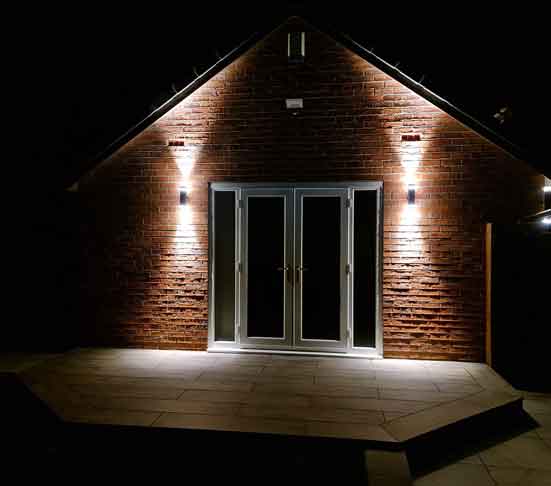
Light Fittings and Fixtures
Welcome to Venture Electrical Ltd's Light Fittings and Fixtures Installation And Repair Service. Our team of certified electricians provide reliable and efficient services for installing and repairing all types of light fixtures and fittings for homes and businesses. We use only the highest quality materials and techniques to ensure that your property is well-lit and functional. Contact us today to schedule your installation or repair service and brighten up your space!
Install Light fixtures and Light Fittings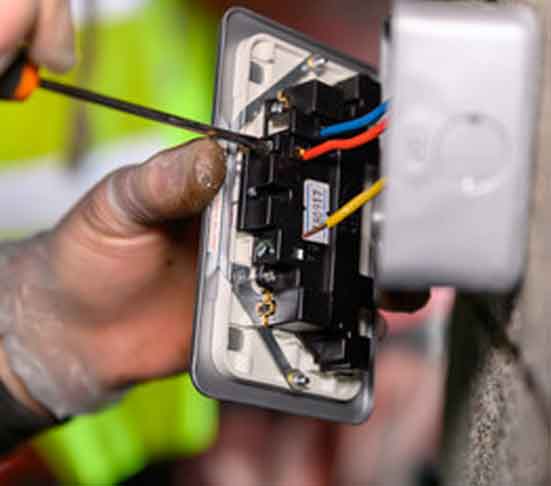
Installing And Replacing Outlet Sockets and Switches
Looking to install or replace outlet sockets and switches in your home or business? Our team of certified electricians provide reliable and efficient services for Installing And Replacing Outlet Sockets and Switches. We offer a range of services to keep your electrical systems up-to-date and functioning properly. Contact us today to schedule your installation or replacement service and keep your property powered up!
Plug Sockets and Light Switches